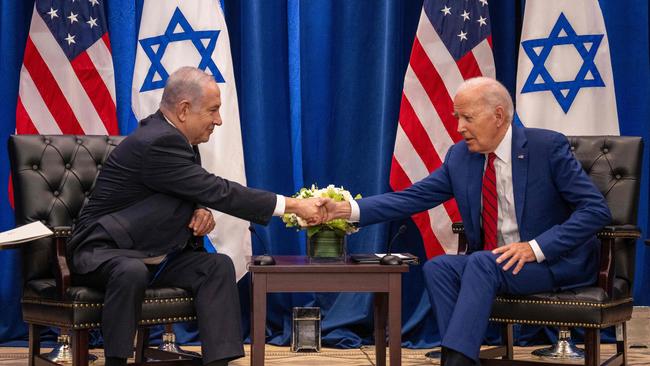
Biden had been due to follow his meeting with Israeli Prime Minister Benjamin Netanyahu with a summit with Palestinian Authority President Mahmoud Abbas, Egyptian President Abdel Fattah al-Sisi and Jordanian King Abdullah.
The cancellation, led by Mr Abbas, was caused by the explosion at a Gaza hospital that killed hundreds of people. Hamas says this was caused by an Israeli rocket strike. Israel says it was a result of a mis-fire from a Palestinian Jihad rocket.
Mr Biden will become the first American leader ever to visit Israel during a military conflict, sending the strongest possible signal of support to Jerusalem as it readies for a ground invasion of Gaza, while nervously fighting off threats on its other borders.
Biden is also sending a message to Israel’s enemies, especially Iran. Strike Israel with conventional military and you’ll likely face an American military response.
But Biden also expects something from Israel in return, namely the maximum restraint possible in its campaign, which the US and Australia both support, to crush the Hamas terrorist group in Gaza following its depraved and sadistic slaughter of more than 1300 Israelis, mainly civilians.
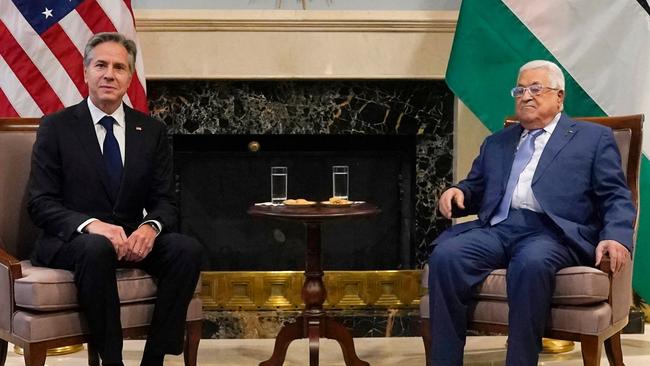
Israel’s dilemma is intense; how to destroy Hamas while inflicting the minimum possible civilian casualties and damage to innocent Palestinian life.
Israel probably made a mistake in cutting off water and power to all of Gaza, as Hamas has prepared reserves of both for its own leadership, some of which has probably left Gaza, and much of which is hiding in the network of underground tunnels Hamas has built in the 15 years it has controlled Gaza.
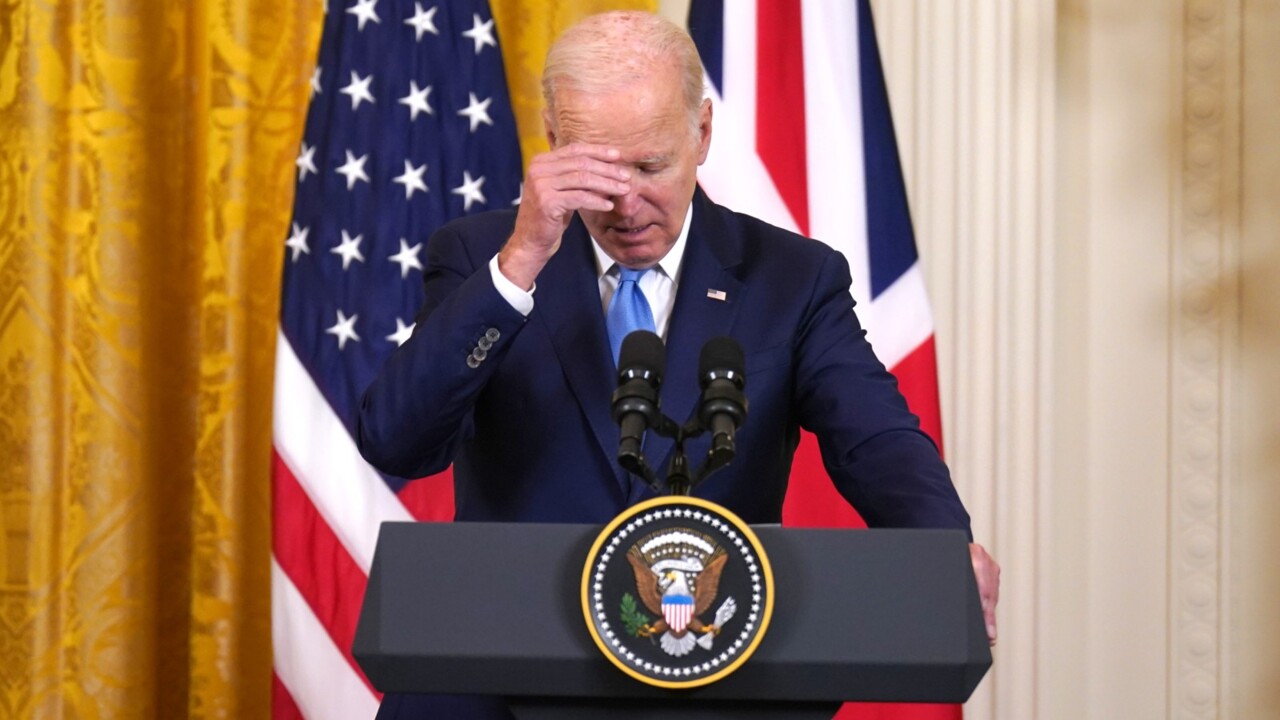
Biden and his Secretary of State, Antony Blinken, are standing with Israel not just figuratively, but literally and physically. Well protected as he is, Biden faces real risk being in a war zone in a time of war. As ever, the US President is the world’s No. 1 terrorist target.
The unannounced visit to Israel of General Michael Kurilla, Commander of US Centcom, which is responsible for all US forces in the Middle East, shows these are not symbolic visits. The US, which has moved two aircraft carrier battle groups into the waters nearby, and put 2000 troops, mainly medical support, on standby, is preparing to take action of its own if necessary.
Washington and Jerusalem want to avoid a wider regional war. Israel’s enemies may have other ideas. Israel has not only mobilised more than 200,000 reservists, it has evacuated towns and kibbutzes in the south, near Gaza, and Israeli towns in the north, near the Lebanese border. These are actions that cannot be taken often, nor sustained indefinitely.
At a bare minimum, Israel will need from these operations to effectively destroy Hamas and its military capabilities. If possible, it wants to free as many of Hamas’s 199 hostages as it can. It also wants to avoid Hezbollah entering the conflict in support of Hamas.
Senior Iranian government figures have threatened to strike Israel pre-emptively if the Israeli campaign against Gaza goes too long. This is almost certainly a bluff, but no one is sure of anything in these circumstances.
If Israel is attacked on other fronts, across the Lebanon border, the Syria border, or from the West Bank, or even by Iranian-backed Houthi rebels in Yemen, there will be an enormous need for logistical support from the US. It’s not difficult to imagine Israel engaged in a furious war for survival across several fronts simultaneously. The US will stand by Israel at such a time. Biden’s visit makes that abundantly clear to the whole world.
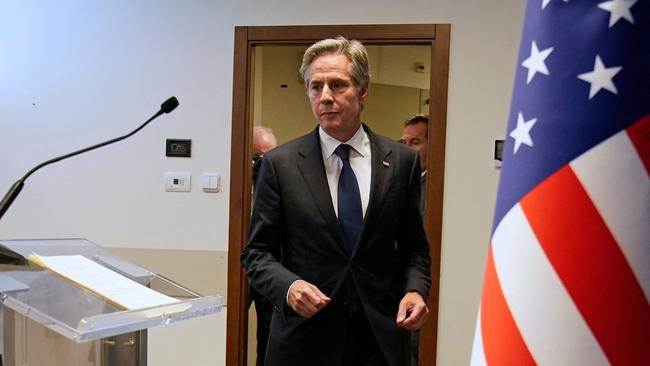
The evacuation of Israel’s northernmost towns, and the towns around Gaza, suggest this could become a very big conflict.
It has always been a central Israeli strategic doctrine that it must have population concentrations in the peripheries of its own territory. I’m not talking about settlements in the West Bank, but towns in Israel proper, near hostile borders. These towns live always with some danger. Their presence asserts Israeli sovereignty and acts as a trip wire for Israeli military response. If Israel now wants them empty this can only mean it is preparing for the possibility of prolonged, intense fighting. Prime Minister Benjamin Netanyahu has warned his people this will be a long war.
Biden, Blinken and other governments close to Israel, especially the UK, want Israel to conduct this operation while providing the means for humanitarian relief to the civilians of Gaza.
Hamas on the other hand always uses Palestinian civilians as human shields and has ordered Gaza residents not to leave their homes in the north of the territory.
Biden’s welcome presence in Israel, and his subsequent visit to Jordan to meet with King Abdullah, Egyptian President Abdel Fattah El-Sisi and the Palestinian Authority’s Mahmoud Abbas, is important to holding US influence in the region generally. Importantly, Abbas, while maintaining his criticisms of Israel, condemned the Hamas atrocities.
It’s likely that once Biden has left the region Israel will begin ground operations in Gaza. The final outcome there – even if Hamas is gone, who will run Gaza day to day? – remains murky.
Israel probably wants the Palestinian Authority to resume control of Gaza, but Abbas couldn’t be seen to do this directly as a gift from Israel. The American instinct will be to internationalise the process in some way. But the immediate future looks very grim indeed.



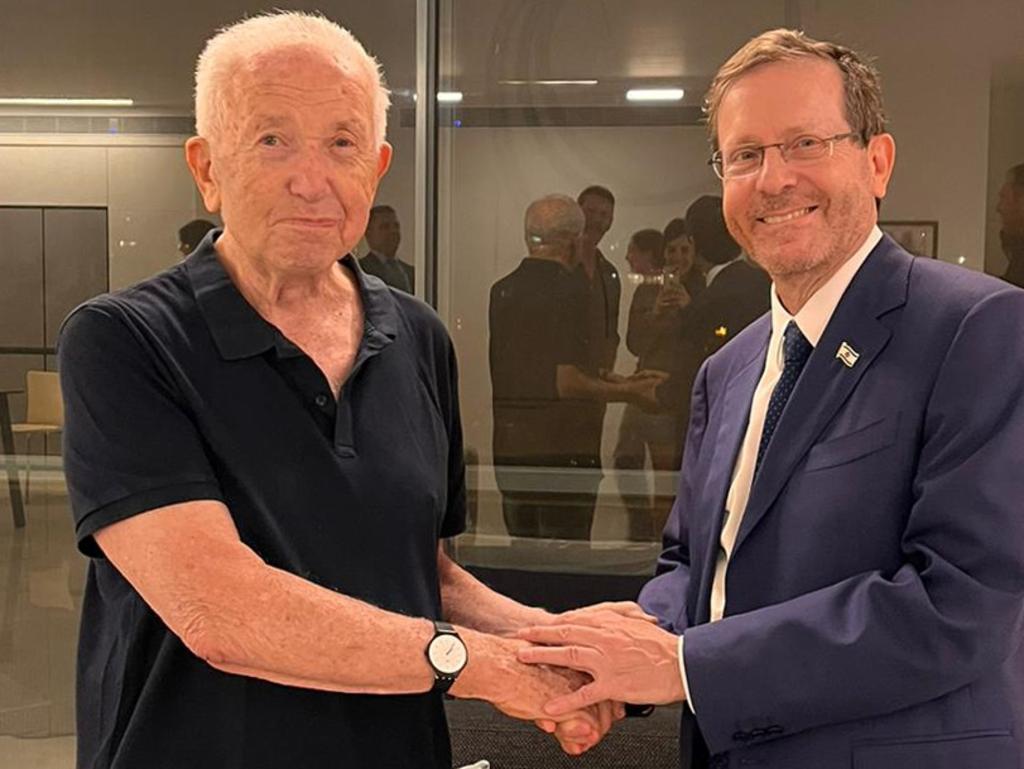




The cancellation of the Jordanian leg of US President Joe Biden’s visit to Israel is a blow to Washington’s effort to control the politics, and the dangerous regional spread, of Israel’s mission to strike Hamas in Gaza. Biden wants both to support Israel and reassure US friends and allies in the Arab world that efforts will be made to protect Palestinian civilians caught up in the conflict.